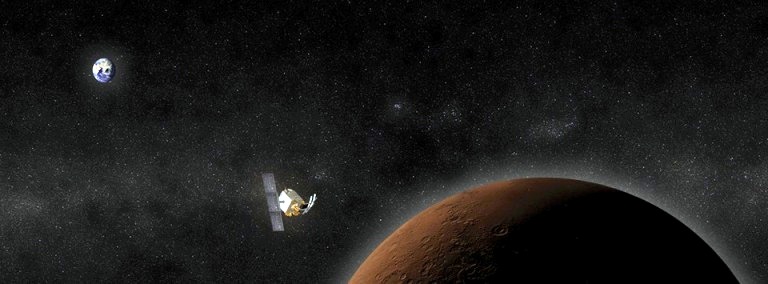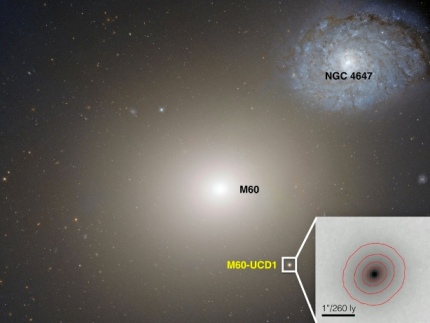
An ISRO illustration of MOM approaching Mars.
BANGALORE (PTI): In a crucial manoeuvre ahead of India's Mars Orbiter Mission's (MOM) entry into its final destination on September 24, the main liquid engine on the spacecraft was on Monday successfully test fired and its trajectory was corrected.
The 440 Newton Liquid Apogee Motor (LAM) engine, idling for the last 300 days on the Mars Orbiter Mission, was fired for four seconds, raising the confidence level of ISRO about the success of insertion of the spacecraft into the Martian orbit.
"Main Liquid Engine test firing on Mars orbiter spacecraft successful: We had perfect burn for 4 seconds as programmed. The trajectory has been corrected. Mars Orbiter Mission will now go ahead with the normal plan for Mars Orbit Insertion," said ISRO.
The success came even as MOM on Monday entered the Mars Gravitational Sphere of Influence.
"Our navigators' calculations show that MOM has entered the Gravitational Sphere of Influence of Mars," ISRO said.
The spacecraft was within 5.4 lakh km radius of the Mars' Gravitational Sphere of Influence, it said. On a 666 million km journey, the spacecraft escaped the Earth gravity pull on December 1 last.
In the last lap on September 24, the orbiter has to be slowed down from 22.1 km per second to 4.4 km per second in relation to the Red Planet to be captured by the Martian orbit. The engine would be fired for 24 minutes on that day to reduce its velocity and insert it into the Martian orbit.
ISRO has already uploaded commands to help the spacecraft automatically enter the orbit. The mission's success will make India the first country in the world to go to Mars in the maiden attempt.
As India's MOM was on course to its destination, US NASA's MAVEN spacecraft began orbiting Mars on Monday.
 Previous Article
Previous Article Next Article
Next Article












The Indian Air Force, in its flight trials evaluation report submitted before the Defence Ministry l..
view articleAn insight into the Medium Multi-Role Combat Aircraft competition...
view articleSky enthusiasts can now spot the International Space Station (ISS) commanded by Indian-American astr..
view article